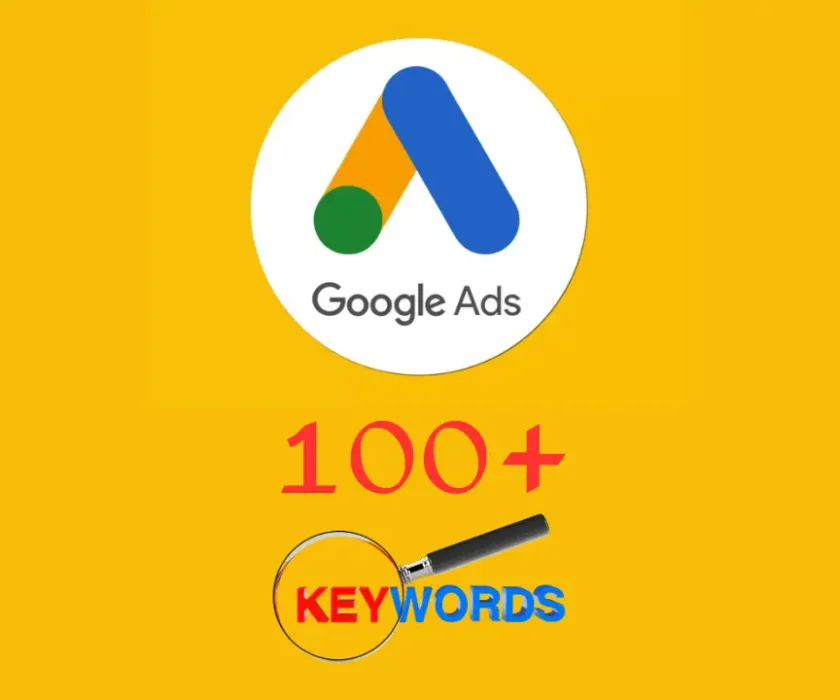Table of Contents
ToggleAvoiding Keyword Cannibalization in Google Ads: Real Insights from Agency Campaigns
If you’re managing Google Ads for your agency or clients, you’ve probably seen this happen:
You add “digital marketing agency” as a keyword in your general campaign…
But somehow, it starts showing for searches like “seo services in Hyderabad.”
Or worse, one keyword silently blocks another due to Google’s intent-based semantic matching.
This is known as keyword cannibalization in Google Ads, and it can silently erode your campaign performance.
In this guide, we’ll break down:
- What keyword cannibalization is (and why it matters)
- Real examples where it hurts performance
- How to fix it using clean ad group structure & strategic negatives
- What to do even when Google overrules your exact match logic
Let’s get into it.
What Is Keyword Cannibalization in Google Ads?
Keyword cannibalization happens when multiple keywords or ad groups in your account compete for the same search term — leading Google to:
- Trigger the wrong ad
- Prioritize an unrelated ad group
- Or worse… block your high-performing keyword entirely
This is not just a match-type issue. Google now uses intent-based matching, which means even unrelated or paused keywords can mess with your ad delivery.
Real Campaign Example: DIGITALOPS
Let’s say you have these ad groups:
- Ad Group A: SEO Services
→ Targets: [seo services in hyderabad], “best seo agency”, etc. - Ad Group B: Digital Marketing (Generic)
→ Targets: “digital marketing company in hyderabad”, [digital marketing services]
You expect both to work independently. But Google sees the phrase “digital marketing” and “seo services” as intent overlap.
So it may do one of the following:
- Show SEO ads even for “digital marketing agency”
- OR block your generic keyword because of an exact-match negative like [seo services]
This is the exact problem we faced with our campaign at DIGITALOPS — despite precise match types and clean groupings.
Why It’s a Big Problem
- You lose control of which message/ad is shown
- Conversions may drop if the wrong landing page is triggered
- Quality Score suffers due to poor ad relevance
- You waste budget on low-performing combinations
Worse: The Ad Preview Tool may tell you your ad isn’t showing because another similar keyword exists — even across paused ad groups.
How to Fix Keyword Cannibalization
1. Structure Campaigns by Intent, Not Just Service
Group keywords based on what the user is searching for, not just your service categories.
Better Structure:
Campaign | Ad Group | Example Keywords |
Digital Services | SEO Services | [seo services hyderabad], “seo agency” |
Digital Services | PPC Services | [ppc services], “google ads company” |
Digital Services | Generic | “digital marketing agency”, [digital marketing services] |
Avoid putting overlapping terms like “marketing services” in multiple ad groups — Google will pick the one it thinks is best.
2. Use Ad Group-Level Negative Keywords (With Caution)
In SEO Services Ad Group, add these as negatives:
- [ppc services]
- [google ads agency]
In PPC Ad Group, add:
- [seo services]
- [seo company]
In Generic Ad Group, add:
- [seo services]
- [ppc services]
BUT… as we saw in your campaigns:
Even with exact match negatives, Google may still block unrelated keywords like “digital marketing company” due to intent-based matching.
3. Avoid Overuse of Negatives (Especially When Using Phrase/Exact)
If you get too aggressive with negatives, Google might suppress your ad for valuable generic queries.
Real Case:
We added [seo services] to the generic ad group to avoid overlap.
Later, Ad Preview Tool said:
Your ad for “digital marketing agency” isn’t showing because of negative keyword [seo services]
Why?
Because Google interpreted the phrase as SEO-related — even when it wasn’t.
Solution: Test using campaign-level shared negative lists with tight control.
4. Don’t Rely 100% on the Ad Preview Tool
It’s helpful, but also can be misleading.
You might see:
“Ad not showing: another ad group has a similar keyword”
Yet when you check performance — the keyword is getting clicks and conversions.
Takeaway:
Use Ad Preview for diagnosis, but cross-verify with the Search Terms Report, Impressions, and Auction Insights before removing or pausing keywords.
5. Limit Ad Group Overlap by Consolidation (If Needed)
If you’re a small account with limited traffic:
Consider grouping closely related services like SEO + PPC into a single “Performance Marketing” ad group with well-crafted RSAs and targeted messaging.
It’s better than splitting hairs and having all keywords block each other.
What Google Says — and What Actually Happens
Google’s own policy says:
Exact match negatives only block the precise term.
But in your campaigns, you’ve seen:
- [seo services] blocking “digital marketing agency”
- [ppc services] blocking “performance marketing”
- Even paused keywords interfering with active ad delivery
So the real takeaway is:
Test, validate, and monitor search term reports every 3–5 days.
Don’t rely solely on what should happen — focus on what is happening.
Final Thoughts: How to Avoid Keyword Cannibalization and Still Rank
Here’s a summarized action plan based on everything we’ve learned:
- Use a tight ad group structure based on user intent
- Add negative keywords cautiously at the ad group level
- Avoid too many broad or overlapping keywords
- Use search terms report weekly to detect unintended overlap
- Monitor with Auction Insights + Ad Preview Tool, but verify against real data
- When in doubt, combine ad groups or consolidate campaigns
Bonus Tip: Use a Tracking Sheet
Maintain a simple Google Sheet with:
- Active keywords
- Their QS, CTR, Impr, Conv
- Conflicting negatives
- Overlaps flagged by Ad Preview
This will save you countless hours and stop cannibalization before it ruins your campaigns.
Need Help Fixing Your Campaign Structure?
At DIGITALOPS, we specialize in advanced Google Ads architecture. From ad copy to bidding to full funnel PPC strategies, we help businesses improve conversions and reduce wasted spend.





